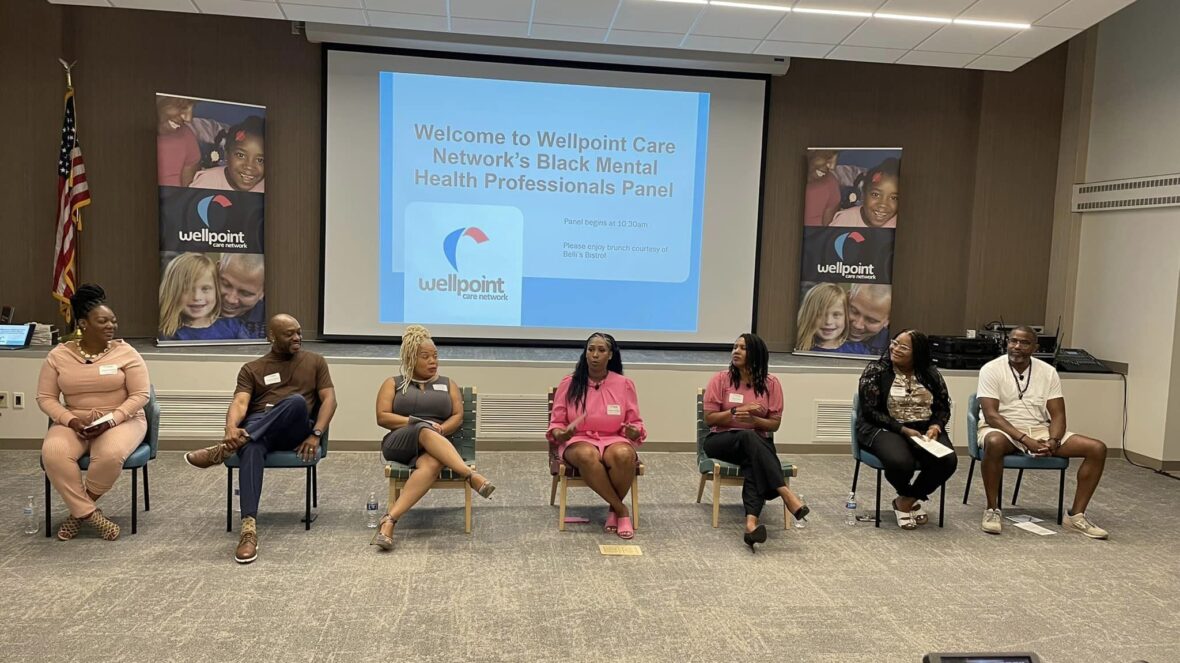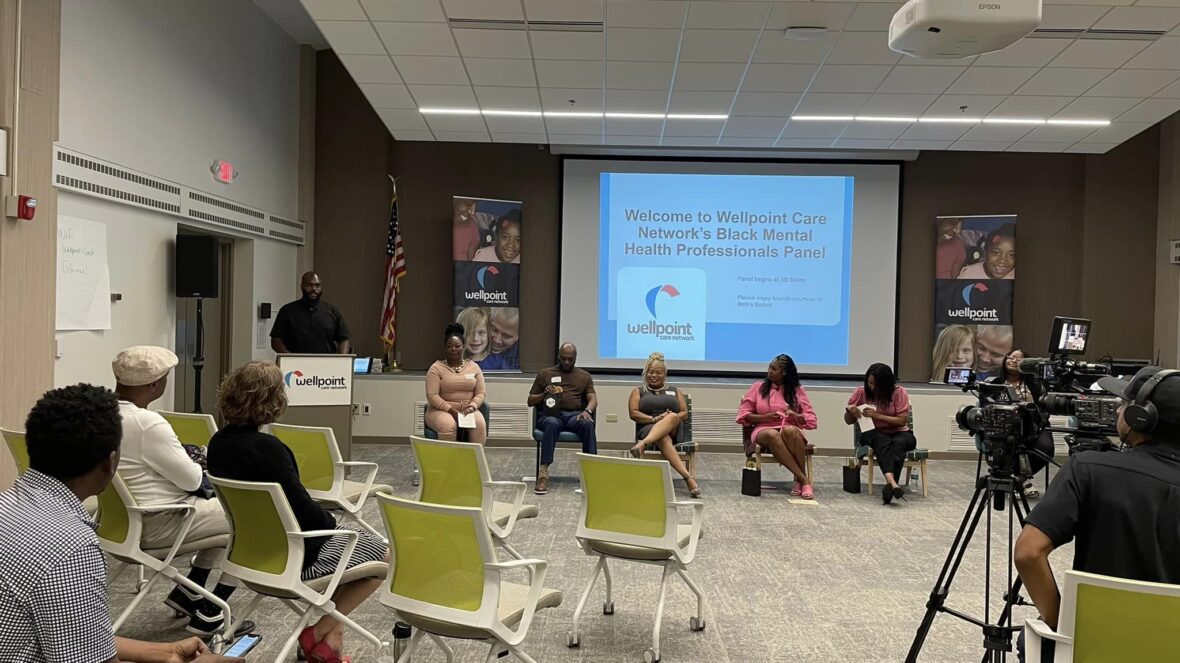Minority Mental Health Awareness Month: Why Representation Matters
July is Minority Mental Health Awareness Month.
The yearly observance raises awareness of the challenges that affect the mental health of racial and ethnic minority groups.
“I believe mental health is important, and I think there’s a stigma on the ‘mental health’ title,” said Mary Brown, therapist at Wellpoint Care Network. “Mental health looks different for different people. You can ask somebody if they have a mental health issue, and they may say no, but they struggle with like four or five conditions. I think it’s important to continue to have conversations and be open to the idea of what mental health can look like.”
In recognition of the month, Wellpoint Care Network hosted its second Black Mental Health Professionals Panel.

“It’s so important for Wellpoint Care Network to continue the conversation around mental health in the Black community because learning can never be finished,” said Alex Williams, Director of Community Engagement at Wellpoint Care Network. “As long as there is a need for mental health services in the community, this conversation is critical to the progress and the process of finding culturally relevant and responsible solutions.”
For many seeking mental health services, finding the right therapist is key. But, that can be a tough task when only 4% of therapists in the United States are African American, and only 1% are African American males.

“How many of us have come to this work because of things that have happened to us with our own mental health,” said Lawanda Chambers of Lifting Individuals Forward Everyday LLC. “Going to seek therapy was the first time that I realized that I was needed in this field, because when I went to see a therapist, I was told, ‘I can’t help you.’ In that moment, I felt so frustrated with the white lady who was talking to me as my therapist. I was like, ‘What do you mean you can’t be my therapist?’ I was filled with anger. But, I moved past that emotion and I realized she did the best thing she could have done in that moment.”
Among the 4% of African American therapists, those seeking mental health services must still find someone who is right for them.
“I understand that we are black therapists, but we also have to understand that all of us are not alike,” said Tanszar Veal of Afiya Counseling Services. “We have collectivist and individualistic views as African Americans. We’re different. When I do talk to my clients, I understand our differences and our similarities. Sometimes, people just want you to hear their story. I don’t want to decenter them by putting me in the center and saying, ‘Oh yeah, I know about that.’ We have to recognize that we are different. And, when we’re talking to our clients, we have to come from their world view, because their trauma may have an outcome that our trauma didn’t. Our trauma may have made us go to school, some traumas make you do drugs, some traumas make you go into prostitution and whatever else.”
Because representation is so important, a push continues to get more young African American students interested in pursuing a career as a therapist.

“When I was growing up, I didn’t think that I could even do this,” said Dr. Lia Knox of Black Space HQ. “I had guidance counselors, I had teachers that said, ‘You’ll be a wonderful musician. You’d be so good at doing makeup. You’d be really good at some other careers.’ But, there was one person in my life that I looked up to and I wanted to be like her. So, that’s the reason why I’m here — because you can do this.”
“We can look up on Google how to be a therapist, yet that’s not what you need to do to be a therapist. You really have to be in the grit of it, you have had to have gone through some things and know how to have a conversation with someone to help them through something,” added Chambers. “It’s not that book that you picked up and read in school or the one that’s on the shelf at Barnes and Noble. It’s real life experience. You’re not only getting a mental health therapist when you’re working with black clinicians, you’re getting an expert and a witness in the field. That’s what we bring to the table. We understand life challenges because we’re also living in a system of systemic and structural racism. That is the elephant that’s in the room that is often times ignored. But, as a black clinician, I’m having to be the first one to speak out and say it. That’s what I’m treating when I’m working with my clients. I’m treating systemic and structural racism.”
For pictures from the event, click here.
To learn about the Mental Health services offered at Wellpoint Care Network, click here.
For available job opportunities, click here.








